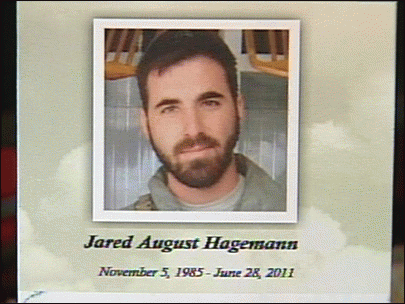This is the first of three articles highlighting the important work of the veteran owned and operated GI coffeehouse movement. In addition to providing desperately needed GI support, GI coffeehouses remain one of the strongest and consistent voices in the antiwar movement - owing to first hand experience of corrupt contractors, officer misconduct and civilian atrocities. Coffee Strong at Fort Lewis is continuing their September fundraising drive, as they are well-short of their $20,000 goal. Please go to http://www.coffeestrong.org/ and donate generously. Under the Hood at Fort Hood http://www.underthehoodcafe.org/ equally deserves your support.
It's easy for the average American to forget the US is still at war in at least seven countries (that we know of). Except for periodic suicide bombings and accidental strikes on wedding parties, the mainstream media prefers to focus on the romances and pregnancies of Hollywood stars and, recently, the trial of Michael Jackson's personal physician. The corporate media dutifully reports on the death of US troops in Afghanistan and Iraq -- 6,242 as of 9/30/11 (The Military Times http://militarytimes.com/valor/index.php). Despite the refusal of the corporate media to report the civilian death toll of the wars in the Middle East, the Lancet and John Pilger and other investigative journalists have made major inroads in publicizing the devastating impact this carnage has had on ordinary Afghan and Iraqi families.
Deploying Troops with Severe Combat-Related Disorders
Sadly there are other important victims in this permanent war on terror who receive virtually no attention in either the mainstream or "alternative" media. I'm referring to the large number of American troops suffering severe and repeated psychological trauma owing to their callous treatment by the Department of Defense. Headlines pop up once or twice a year about the misguided Pentagon policy of redeploying servicemen to Iraq and Afghanistan with combat-related traumatic brain injury (TBI), post traumatic stress disorder (PTSD), and clinical depression - and are quickly forgotten.
In 2009 there were Congressional hearings following the revelation that more American troops were dying from suicide than combat (http://www.coffeestrong.org/). During the hearings, it came out that servicemen were returning stateside to be hospitalized for TBI, PTSD and depression; started on antidepressants and antipsychotics; and redeployed to Iraq and Afghanistan -- many while still on medication. It also came out that commanding officers frequently overrode the recommendation of treating psychiatrists that patients not be redeployed.
High Stress Guerrilla and Urban Warfare
The guerrilla and urban warfare in the Middle East is more similar to the Vietnam War than earlier conflicts, in which opposing troops squared off along a distinct front line. Confronting an enemy who can spring up out of nowhere and is often indistinguishable from the civilian population requires the combatant to assume an extreme attitude of vigilance over long periods of time. During Vietnam, the Pentagon recognized the extreme disruption in sleep, appetite and other biological rhythms resulted from extended periods of heightened mental arousal state. After a few weeks in this state, many people find themselves unable to shut off the heightened anxiety at night and complain of insomnia. For many the increase in vigilance and mental arousal persists after troops leave the battlefield, resulting in the condition known as post traumatic stress disorder (PTSD).
The Effect of Civilian Atrocities
The large number of civilian atrocities in the Middle East also take their toll on American GIs. A number of troops hospitalized for PTSD and combat-related depression report witnessing and/or participating in attacks on innocent women and children. This is clear from the heart-breaking testimonials GIs and Marines gave at the 2008 Winter Soldier Conference (see http://www.youtube.com/watch?v=DjQxMBacLBE and http://www.armytimes.com/news/2008/03/ap_wintersoldier_031508/)
According to his widow, flashbacks of civilian atrocities featured prominently in Staff Sergeant Jared Hagemann's illness. In 2009 Hagemann received a diagnosis of PTSD on the psychiatric unit of Madigan Army Hospital at Fort Lewis. On June 28, 2011 he shot himself in the head, rather than return to Afghanistan for his ninth deployment (http://www.coffeestrong.org/).
The Effect of Repeated Deployments
The massive stress resulting from repeated, unpredictable deployments is also a major culprit in the development of PTSD and suicidal depression among troops deployed in the Middle East. During Vietnam, Pentagon officials recognized the increased risk of PTSD with guerrilla and urban warfare. Accordingly, they made a deliberate effort to reduce stress levels by limiting combat deployments to twelve months, after which a GI could count on returning to the US to complete his two year service requirement.
Although current deployments are shorter than during Vietnam, our Middle East troops can be required to serve as many as eight or more deployments over a much longer period of active duty. In theory, enlisted GIs are assigned active duty for four to six years and finish their eight year contract in the reserves. Under the Bush administration's controversial Stop Loss policy, thousands of troops were forced to return to combat even after their term of enlistment ended. Obama ended this controversial policy in February 2011.
(Note: You can view every article as one long page if you sign up as an Advocate Member, or higher).






